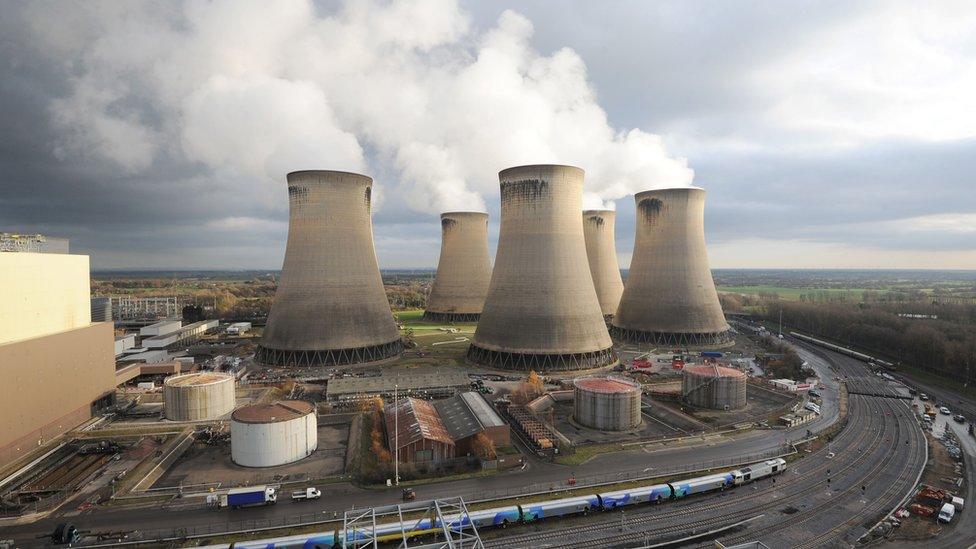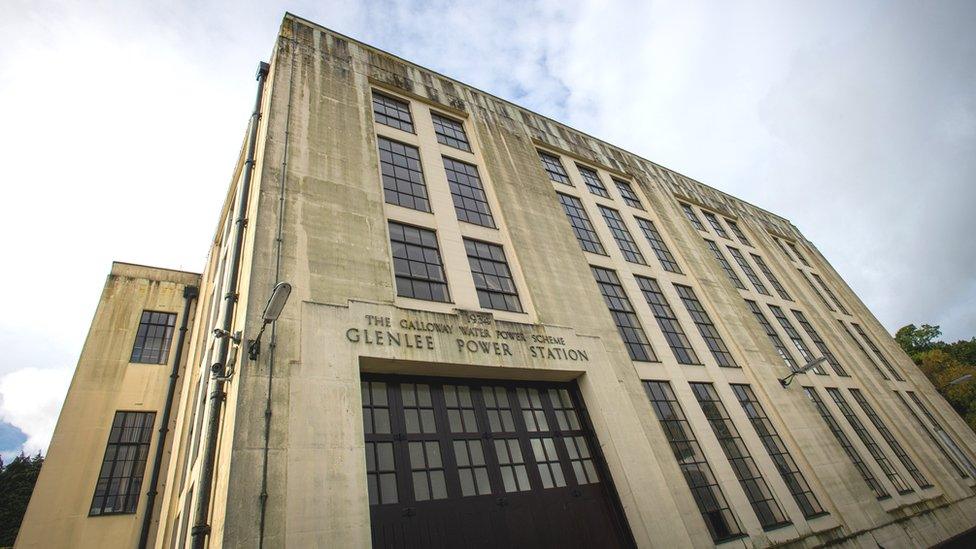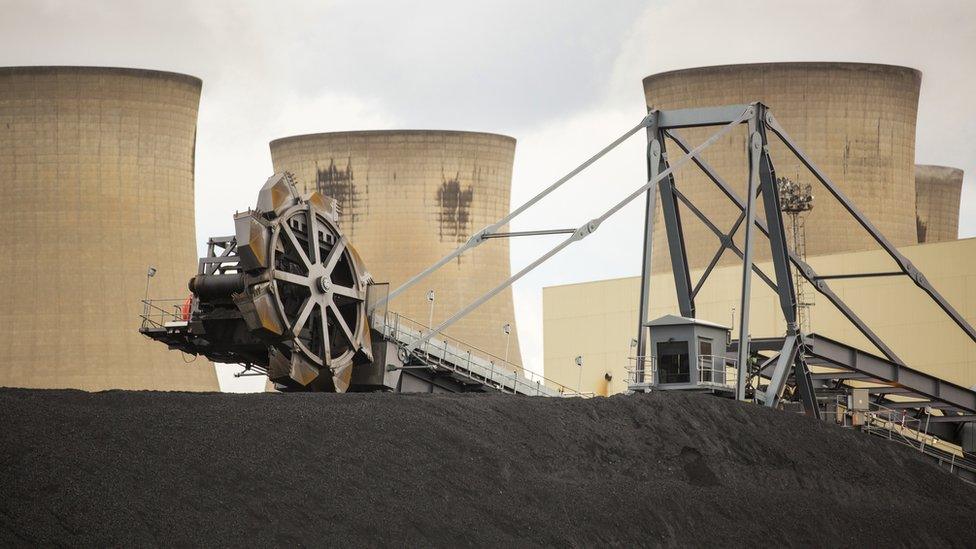Drax: Selby power station workers to walk out in pay dispute
- Published

Drax power station near Selby in North Yorkshire produces 7% of the UK's electricity
Workers at the UKs biggest power station, Drax, near Selby, have announced plans to stage a series of nine strikes over pay.
The Unite union said about 180 workers had rejected an 8% pay offer, which they argued was a real terms pay cut.
Responding, Drax said the deal was worth 10% plus a £2,000 lump sum.
The company added it was "disappointed" by the union's stance, and stressed it had "robust plans" to continue power supplies in the event of any strikes.
Unite said strikes would take place on 20 and 27 February, then 6, 13, 20, 27 March and 4, 10 and 17 April.
Unite's general secretary Sharon Graham said: "This is a classic case of greed by a company which is already generating eye-watering profits.
"Drax is cynically seeking to boost its bonanza profits further by forcing workers to take a real terms pay cut."
'Generous settlement'
Drax said it had offered a "full and final pay settlement" of 8% over 15 months, with three months' backdated pay, making the offer worth 10%.
A Drax spokesperson said: "In the event of industrial action, Drax has robust plans in place to ensure the power station continues to safely generate renewable electricity for millions of homes and businesses.
"We have put forward a generous full and final pay settlement which rewards our valued colleagues.
"We are deeply disappointed that Unite is planning to go forward with this unnecessary action which will see colleagues lose money instead of securing a significant pay rise."
Drax said its employees' pay had risen by 51.6% since 2011, including its 2023 offer, compared with inflation growth over the same period of 38.2%.
The company said it "remains open" to dialogue with Unite.
A spokesperson said the power station employed 471 production staff of which 185 took part in the ballot.
When fully operational, Drax generates 7% of the UK's electricity needs.

Follow BBC Yorkshire on Facebook, external, Twitter, external and Instagram, external. Send your story ideas to yorkslincs.news@bbc.co.uk, external.
Related topics
- Published26 January 2023

- Published12 December 2022
